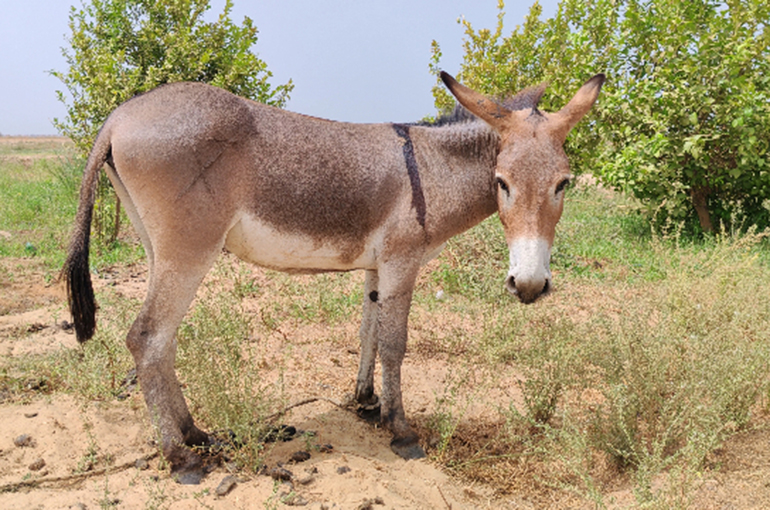 Chinese Traders Scour the Globe for Donkeys, an Asset More Valuable Than Cattle or Horses
Chinese Traders Scour the Globe for Donkeys, an Asset More Valuable Than Cattle or Horses(Yicai) Sept. 25 -- A recent remark by the head of the Donkey Association, part of the China Animal Agriculture Association, has garnered widespread attention in the country, once home to the world’s largest population of these domesticated equines.
“China has enough cattle and horses,” Wang Chunhong told China Newsweek on Sept. 22. “But it is short of donkeys,” he said, noting that the national herd falls well short of market demand and prices for donkey products continue to climb.
In the early 1990s China had roughly a quarter of the world’s donkeys, peaking at about 11.2 million. But as they were phased out as transport and draft animals, their slow reproduction rate and the slaughter of millions for ejiao -- a gelatin made from boiled donkey hides that is used mainly in cosmetics and traditional Chinese medicines -- combined to shrink their ranks to about 1.46 million by 2023.
It is a cultural irony that while cattle and horses, or niuma in Chinese, is a term commonly used in China to describe overworked laborers, donkeys -- once seen as a modest beasts of burden -- are its most sought-after and valuable livestock.
Chinese traders are now importing donkeys from Central Asia to Pakistan and Africa to meet the demand for ejiao.
China imported 560 live donkeys from Kyrgyzstan for the first time in 2016, followed by 98 from Kazakhstan in 2019. Demand then shifted towards Africa due to the limited donkey population in Central Asia.
Pakistan, the world's third-largest donkey producer, has over 5 million of the animals and has started setting up special farms in Punjab state and the Khyber Pakhtunkhwa province dedicated to exports to China.
Donkeys are mainly found in developing countries, especially those in Africa, where they are crucial for work and transportation due to their endurance and low rearing costs, making them vital to farmers' livelihoods.
Donkeys are a key economic resource in rural areas, noted Zhu Ming, director of the regional cooperation office at Shanghai Institute for International Studies.
However, the price of African donkeys has risen while their availability has decreased. For example, prices in Burkina Faso surged more than 60 percent between 2014 and 2016, while Kenya’s donkey population halved from 2009 to 2019.
In February last year, the leaders of the African Union's 55 member states approved a 15-year ban on the trade of donkey hides. The decision was driven by public sentiment, media influence, and Western animal rights ideologies, Zhu pointed out.
Editor: Martin Kadiev